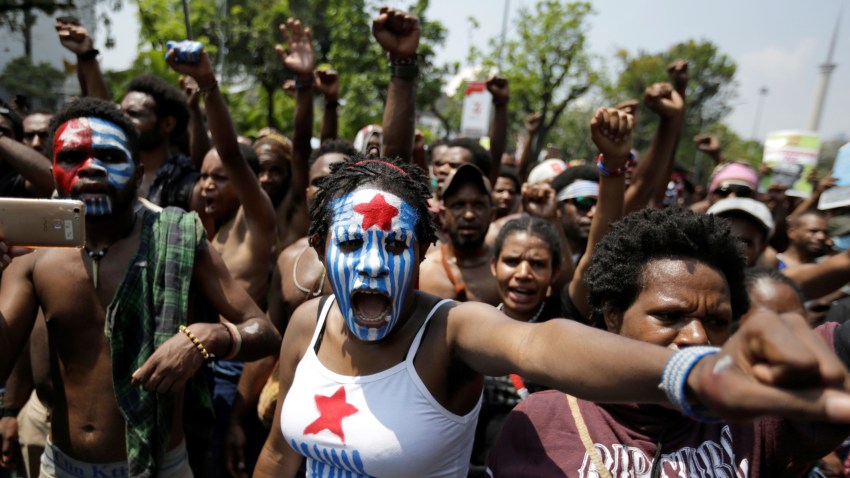In late 2018, a violent attack in Indonesia brought sudden, global attention to West Papua, a region whose fight for independence was by then decades old. The attack targeted construction workers who were building a stretch of the controversial Trans-Papua highway, a project the central Indonesian government has said will improve quality of life, but that many locals oppose. By the end, 17 civilians and Indonesian military members had been killed; a separatist militant group, the National Liberation Army of West Papua, later claimed responsibility.
It was the deadliest attack Indonesia had seen for several years—and it was a sign of things to come. Since then, violence in West Papua, the Indonesian half of the island of New Guinea, which includes the provinces of Papua and West Papua, has ticked up significantly, as Jakarta ramps up its military and police presence there. Military operations in Nduga, the district where the 2018 attack took place, have led thousands of refugees to flee their homes in the face of rising civilian casualties. Worryingly, police are increasingly targeting even nonviolent protesters, such as in early December, when eight Papuan students were arrested for holding a peaceful rally.
“I do think there’s [been] a serious escalation of tensions and armed conflict in West Papua,” said Richard Pearshouse, Amnesty International’s head of crisis and the environment. “There are reports of increased troops moving into West Papua, and that, along with media reports, paints a picture of a dire security situation.” That includes, he said, “a deterioration of the human rights of civilians.”

